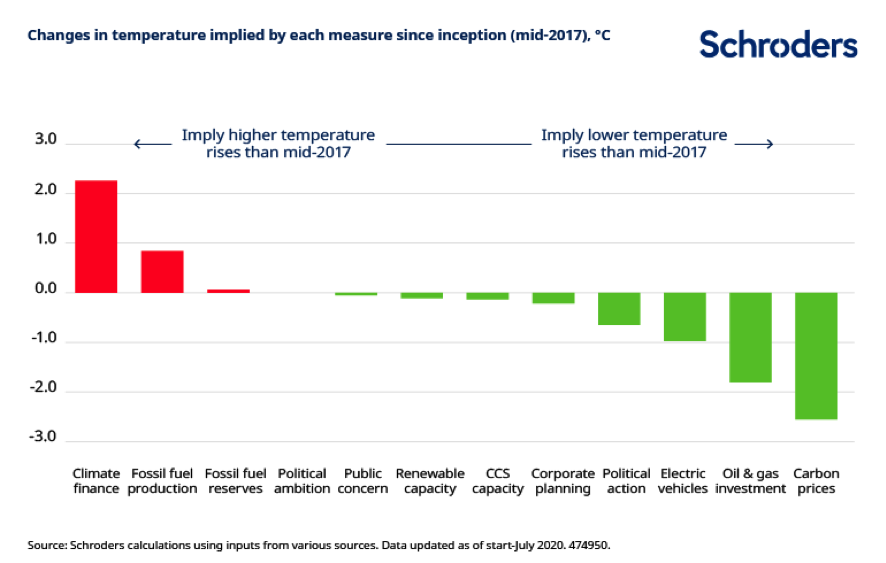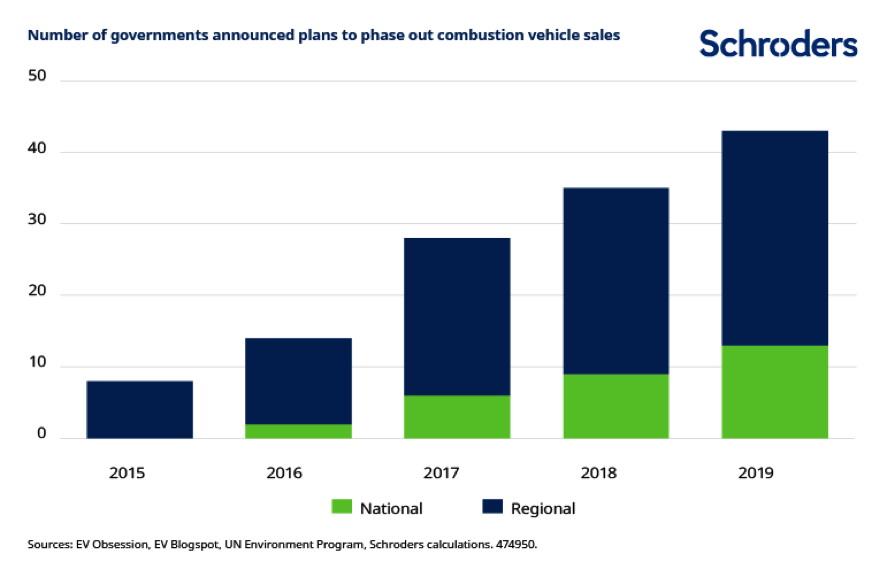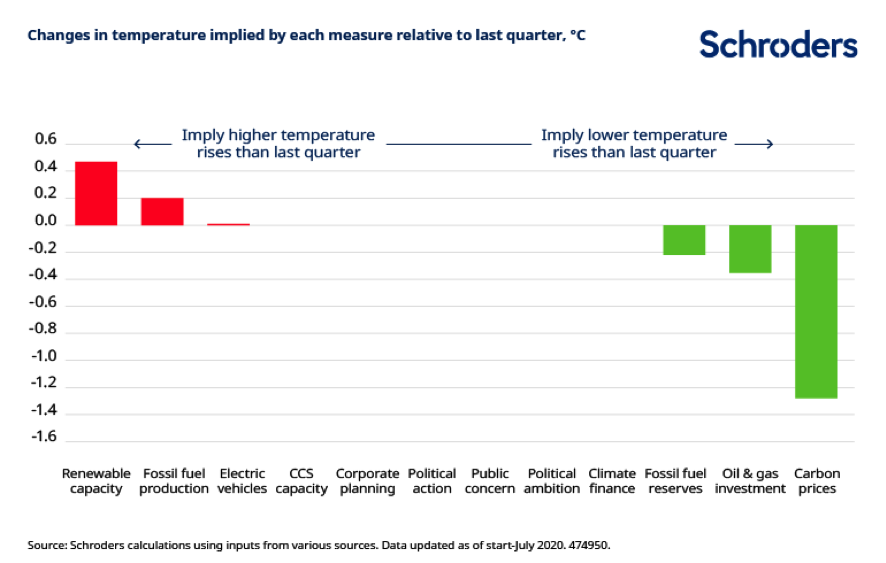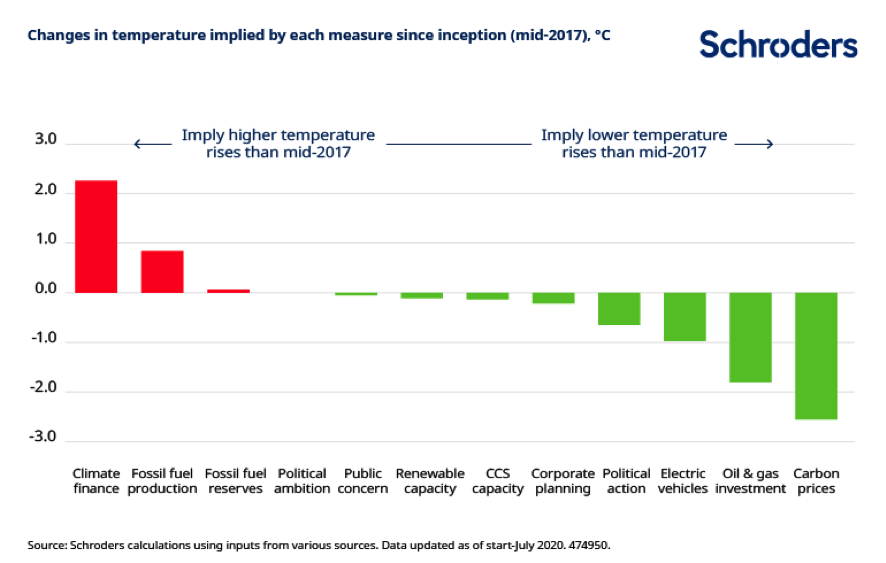Today is the International Day against Climate Change. Schroders analyses how the Covid-19 crisis has influenced this phenomenon. The conclusion is that, despite the fact confinements have reduced greenhouse gas emissions, the forecasts for global warming are still far above the commitment made in Paris in 2015. In particular, Schroders Climate Progress Dashboard’s latest update suggests the current speed of climate action will increase temperatures by 3.9°C, almost twice the Paris Agreement target of 2°C.
We believe that as economies recover from the Covid-19 crisis, it is likely the decline in emissions will be reversed, if we take as a reference what happened after past crises. So tougher structural changes are needed if we are to avoid the equally devastating long-term impacts of the climate crisis.
Positive and negative aspects
Returning to the Climate Progress Board, it has reflected a tension between positive and negative during the last quarter.
Positive: rising carbon prices and lower capital investment in fossil fuels
The sharp rise in carbon prices, particularly in the European Union Emissions Trading Scheme, which reached a decade high in July, gave a major boost. This increase, despite the fact that industrial production is still moderate, points to optimism that stricter climate measures will be taken in the future. Weaker capital investment in fossil fuels in the last quarter also contributed, indicating a forecast for lower growth in that industry.
Negative: fossil fuel production growth, weak renewable energy growth
BP’s latest statistical report on world energy in 2020 highlighted the challenge of continued growth in fossil fuel production. It showed relatively weaker growth in renewable energy capacity than the IEA has determined will be necessary to meet the commitments of the Paris Agreement.
Tensions in the automotive sector: decline in electric car sales versus commitments on combustion engines
The 3.1°C temperature increase implicit in the growth of electric car sales has not changed compared to the last quarter. The pressures on that indicator are a microcosm within the broader ones on the climate change sector.
Returning to the Climate Progress Board, it has reflected a tension between positive and negative during the last quarter.
Negative and positive aspects
The tension between current headwinds and future opportunities is common to many of the indicators across the Climate Progress Panel.


How these tensions will ultimately be resolved remains uncertain, but the Covid-19 crisis has highlighted the importance of political leadership in driving change throughout society. Early signs give cause for optimism.
Summary of changes
The following graph shows the changes in each indicator in relation to the last update (first quarter of 2020).

The graph below shows the changes in each of the indicators since we launched the Climate Progress Board in mid-2017.






